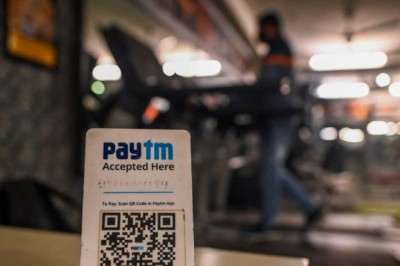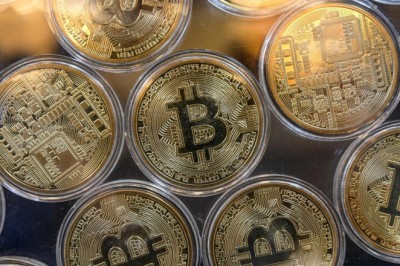
 Key Points
Key Points- The finance and tech CEOs gathering at the World Economic Forum this week expressed measured optimism about the economy in 2023 — but at least one major risk looms for markets, they said.
- The world's largest economy risks defaulting on its debt for the first time in American history this summer as politicians wrangle over raising the country's debt limit, currently capped at $31.4 trillion.
- "I don't think anybody knows what would happen if they really went further than what happened in 2011," the CEO of a Wall Street bank said on the sidelines of the conference.
In this article
DAVOS, Switzerland – The finance and tech CEOs gathering at the World Economic Forum this week expressed measured optimism about the economy in 2023 — but at least one major risk looms for markets, they said.
The resilient U.S. economy, a mild European winter and China's reopening have given investors and forecasters hope that a severe recession can be avoided, Citigroup CEO Jane Fraser told CNBC's Sara Eisen on Tuesday.
"All in all, the year has started off better than everyone expected," Fraser said. "Everyone's converging now in the states more around a mild, manageable recessionary scenario, driven by the strength that we've got in the labor markets."
The U.S. economy has slowed since the Federal Reserve began raising interest rates last year, sowing fears that a recession was unavoidable.
In the early weeks of 2023, investors have begun to hope that moderating inflation and strong employment figures could result in a so-called soft landing. But budding optimism at the annual meeting of billionaires, heads of state and business leaders in the Swiss Alps collided with a fresh threat, on top of existing concerns including the Ukraine war and global climate change.
The world's largest economy risks defaulting on its debt for the first time in modern history this summer as politicians wrangle over raising the country's debt limit, currently capped at $31.4 trillion. The U.S. is expected to reach its debt limit Thursday, Treasury Secretary Janet Yellen said last week. After that, the Treasury will find ways to fund their debt obligations until at least early June, Yellen said.
That sets up a standoff in Congress in the weeks ahead. Republicans and Democrats will engage in brinkmanship over political goals. The last time a potential default risk surfaced was in 2011, when lawmakers averted disaster after markets convulsed and the U.S. had its credit rating downgraded.
"I don't think anybody knows what would happen if they really went further than what happened in 2011," the CEO of a Wall Street bank said on the sidelines of the conference. "That's why it's scary."
The CEO, who declined to be identified speaking candidly, said he had just met a group of U.S. lawmakers worried about the coming impasse.
"It would affect markets and it would be a drag on economic activity because of the uncertainty," he said. "It would be really bad for us."
But coming to a deal to increase the U.S. debt limit won't be easy in a political environment that's grown even more polarized in the past decade.
Addressing the debt ceiling "is going to be hard," said Salesforce CEO Marc Benioff on Wednesday. House Speaker Kevin McCarthy, R-Calif., has "got to handle it, but he's got a lot of issues," he said.
The newly elected McCarthy is in a bind. While conservative members of his caucus insist they do not want the country to default on its debt, McCarthy is under pressure to demand deep spending cuts. McCarthy has suggested that he won't support raising the debt ceiling without a compromise on spending.
The situation is a "mess" with at least one possible solution: Congress could pass a "clean debt limit," according to Peter Orszag, CEO of financial advisory at Lazard. That refers to a borrowing increase without spending cuts.
McCarthy, however, would likely not survive as speaker if he agreed to that, Orszag said.
Another top Wall Street CEO said he planned to push lawmakers at Davos to focus more on spending cuts rather than the debt ceiling.
The worries contrast with early signs this month that formerly frozen markets have begun to awaken. For instance, debt issuance has been "incredibly strong" in January so far, according to Fraser.
It's too early to say whether those signs are a harbinger of better times for investment banks and the wider economy, she said.
"We're not out of the woods yet," Fraser said.
 Palantir CEO tells tech workers who don't like the company's military deals, ‘Don’t work here’Ryan Browne17 min ago
Palantir CEO tells tech workers who don't like the company's military deals, ‘Don’t work here’Ryan Browne17 min ago Ireland signals 'better mood' on UK-EU talks after bitter Brexit disputesMatt Clinch3 hours ago
Ireland signals 'better mood' on UK-EU talks after bitter Brexit disputesMatt Clinch3 hours ago The threat of a transatlantic trade war is dominating DavosSilvia Amaro4 hours agoRead More
The threat of a transatlantic trade war is dominating DavosSilvia Amaro4 hours agoRead More












Comments
0 comment